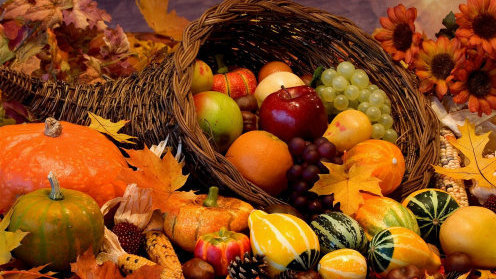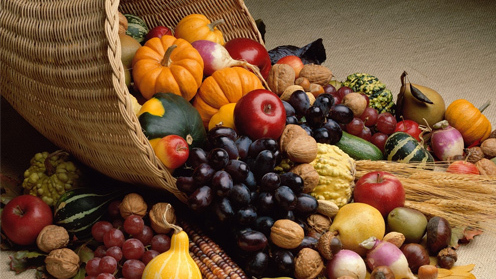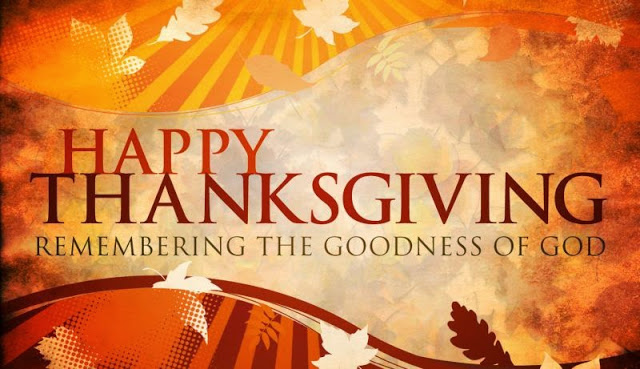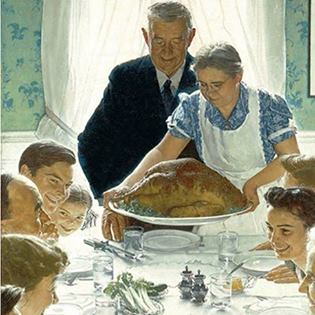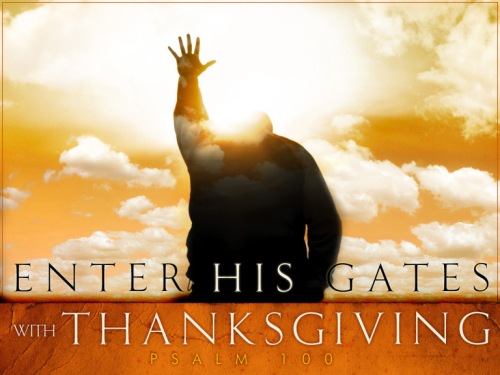Christianity can be condensed into four words: Admit, Submit, Commit and Transmit. -Samuel Wilberforce


Article by
David Mathis
Executive Editor, desiringGod.org
What if God had more for our kin this Thanksgiving than the Macy’s parade, tryptophan-induced naps, and NFL football? What if we saw our gatherings with extended family not as a chance to check out, but as an opportunity for Christian mission?
It should be good news to us that we don’t have to be Jedi-master evangelists to be agents of gospel advance among those whom we know best. In fact, it may be better if we’re not.
So before bellying up to this year’s turkey feast, here’s a few thoughts from a fellow bungler to help us think ahead and pray about how we might grow in being proxies for the gospel, in word and deed, among our families this Thanksgiving. These are some practical ideas for what it might mean to see ourselves as sent among our relatives. These suggestions are inspired by Randy Newman’s excellent book Bringing the Gospel Home: Witnessing to Family Members, Close Friends, and Others Who Know You Well.
1) Pray ahead.
Begin praying for your part in gospel advance among extended family several days before gathering. And let’s not just pray for changes in them, but also pray for the needed heart changes in us — whether it’s for love or courage or patience or kindness or fresh hope, or all of the above.
2) Listen and ask questions.
Listen, listen, listen. Perhaps more good evangelism than we realize starts not with speaking but with good listening. Getting to know someone well, and specifically applying the gospel to them, is huge in witness. Relationship matters.
Ask questions to draw them out. People like to talk about themselves — and we should capitalize on this. And most people only enjoy talking about themselves for so long. At some point, they’ll ask us questions. And that’s our golden chance to speak, upon request.
One of the best times to tell the gospel with clarity and particularity is when someone has just asked us a question. They want to hear from us. So let’s share ourselves, and Jesus in us. Not artificially, but in genuine answer to their asking about our lives. And remember it’s a conversation. Be careful not to rabbit on for too long, but try to keep a sense of equilibrium in the dialogue.
3) Raise the gospel flag early.
Let’s not wait to get to know them “well enough” to start clearly identifying with Jesus. Depending on how extended our family is, or how long it’s been since we married in, they may already plainly know that we are Christians. But if they don’t know that, or don’t know how important Jesus is to our everyday lives, we should realize now that there isn’t any good strategy in being coy about such vital information. It will backfire. Even if we don’t put on the evangelistic full-court press right away (which is not typically advised), wisdom is to identify with Jesus early and often, and articulate the gospel with clarity (and kindness) as soon as possible.
No one’s impressed to discover years into a relationship that we’ve withheld from them the most important things in our lives.
4) Take the long view and cultivate patience.
With family especially, we should consider the long arc. Randy Newman is not afraid to say to Christians in general, “You need a longer-term perspective when it comes to family.” Chances are we do. And so he challenges us to think in terms of an alphabet chart, seeing our family members positioned at some point from letters A to Z. These 26 steps/letters along the way from distant unbelief (A) to great nearness to Jesus (Z) and fledgling faith help us remember that evangelism is usually a process, and often a long one.
It is helpful to recognize that not everyone is near the end of the alphabet waiting for our pointed gospel pitch to tip them into the kingdom. Frequently there is much spadework to be done. Without losing the sense of urgency, let’s consider how we can move them a letter, or two or three, at a time and not jerk them toward Z in a way that may actually make them regress.
5) Beware the self-righteous older brother in you.
For those who grew up in nonbelieving or in shallow or nominal Christian families, it can be too easy to slide into playing the role of the self-righteous older brother when we return to be around our families. Let’s ask God that he would enable us to speak with humility and patience and grace. Let’s remember that we’re sinners daily in need of his grace, and not gallop through the family gathering on our high horse as if we’ve arrived or just came back from the third heaven. Newman’s advice: “use the pronouns ‘we’ and ‘us’ far more than ‘you’” (65).
6) Tell it slant.
Some extended family contexts may be so far from spiritual that we need to till the soil of conversation before making many direct spiritual claims. It’s not that the statements aren’t true or desperately needed, but that our audience may not yet be ready to hear it. The gospel may seem so foreign that wisdom would have us take another approach. One strategy is to “tell it slant,” to borrow from the poem of the same name — to get at the gospel from an angle.
“If your family has a long history of negativity and sarcasm,” writes Newman, “the intermediate step of speaking positively about a good meal or a great film may pave the way for ‘blinding’ talk of God’s grace and mercy” (67). Don’t “blind” them by rushing to say loads more than they’re ready for. As Emily Dickinson says, “The truth must dazzle gradually / Or every man be blind.”
7) Be real about the gospel.
As we dialogue with family about the gospel, let’s not default to quoting Bible verses that don’t really answer the questions being asked. Let’s take up the gospel in its accompanying worldview and engage their questions as much as possible in the terms in which they asked them. Newman says, “We need to find ways to articulate the internally consistent logic of the gospel’s claims and not resort to anti-intellectual punch lines like, ‘The Bible says it, I believe it, and that settles it.’”
Yes, let’s do quote Bible when appropriate — we are Christians owing ultimately to revelation, not to reason. But let’s not make the Bible into an excuse for not really engaging with their queries in all their difficulty. (And let’s not be afraid to say we don’t know when we don’t!)
8) Consider the conversational context.
Context matters. It doesn’t have to be face to face across the table to be significant. “Many people told me their best conversations occurred in a car — where both people faced forward, rather than toward each other,” says Newman. “Perhaps the indirect eye contact posed less of a threat” (91). Maybe even sofas and recliners during a Thanksgiving Day football game, if the volume’s not ridiculous. Be mindful of the context, and seek to make yourself available for conversation while at family gatherings, rather than retreating always into activities or situations that are not conducive to substantive talk.
9) Know your particular family situation.
In some families, the gospel has been spoken time and again in the past to hard hearts, perhaps there has been a lack of grace in the speaking, and what is most needed is some unexpected relational rebuilding. Or maybe you’ve built and built and built the relationship and have never (or only rarely) clearly spoken the message of the gospel.
Let’s think and pray ahead of time as to what the need of hour is in our family, and as the gathering approaches pray toward what little steps we might take. And then let’s trust Jesus to give us the grace our hearts need, whether it’s grace for humbling ourselves enough to connect relationally or whether it’s courage enough to speak with grace and clarity.
10) Be hopeful.
God loves to convert the people we think are the least likely. Jesus is able to melt the hardest of hearts. Some who finished their lives among the greatest saints started as the worst of sinners.
Realistically, there could have been some cousin of the apostle Paul sitting around some prayer meeting centuries ago telling his fellow believers, “Hey, would you guys pray for my cousin Saul? I can’t think of anyone more lost. He hunts down followers of The Way and arrests them. Just last week, he was the guy who stood guard over the clothes of the people who killed our brother Stephen.” (53)
With God, all things are possible. Jesus has a history of conquering those most hostile to him. We have great reason to have great hope about gospel advance in our families, despite how dire and dark it may seem.
When We Fail
And when we fail — not if, but when — the place to return is Calvary’s tree. Our solace in failing to adequately share the gospel is the very gospel we seek to share. It is good to ache over our failures to love our families in gospel word and deed. But let’s not miss that as we reflect on our failures, we have all the more reason to marvel at God’s love for us.
Be astonished that his love is so lavish that he does not fail to love us, like we fail to love him and our families, and that he does so despite our recurrent flops in representing him well to our kin.


